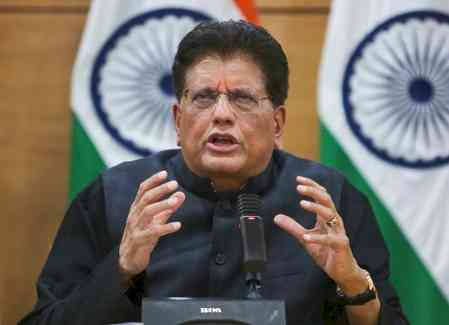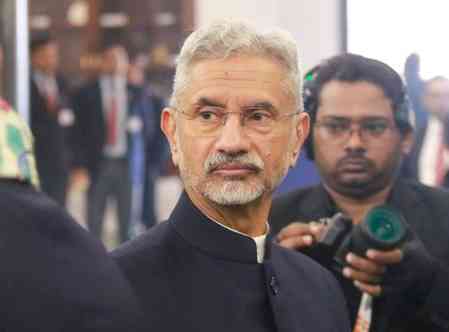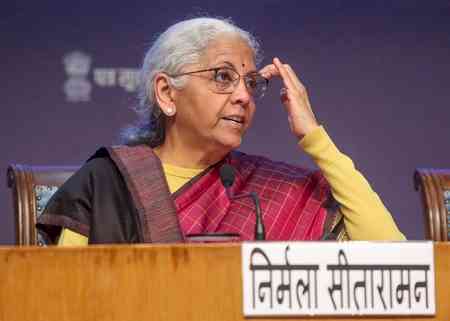Industry reactions to Union Budget 2022-23 (Part-5)

Farrokh Cooper – Chairman & Managing Director – Cooper Corporation Pvt Ltd
“The Union budget 2022-23 announced today by honorable finance minister has shown a progressive and futuristic approach for all sectors in India, which will help boost the Indian economy and recover from the pandemic. The government has taken some prudent initiatives for MSMEs in this budget, and I believe that their approach to fast-tracking the economy by providing opportunities to start-ups and businesses and creating six million new jobs will not only boost the economy but will support our future generation with an advantage above all. The government's support for manufacturing, agriculture, healthcare, MSMEs, and infrastructure as well as the expansion of 100 PM Gati Shakti Cargo terminals over the next three years, are encouraging steps toward a brighter and more successful India in the coming years."
Anurag Garg, Managing Director & Country Head, Vitesco Technologies, India
“In today’s budget, there are so many important announcements that will be helpful for Indian automotive segment paving their way into EV segment and manufacturing sector at large. Continuing with the ‘Atmanirbhar Bharat’ stride from last year, there is continuous strong push towards building self-reliance in manufacturing and localization in this budget too. This year the government has shown major attention on the overall digitalization of various services and pushing clear air & sustainability as one of the most important highlights. We appreciate the heightened emphasis in respect to EV segment, the introduction of the new policy for battery swapping will encourage the use of electric vehicles. We also look forward seeing further action to step up initiatives to boost EV infrastructure and EV ecosystem to achieve its broader decarbonization goals and support clear air resolutions. With additional increased focus on expanding EV infrastructure across the country, with more EV charging stations to help vehicle owners to shift to electric cars without lesser worry of connectivity, these decisions were much needed at this period to boost usage of EV”.
Vinkesh Gulati – President FADA
“Union Budget 2022 seeks to lay the foundation for the next 25 years, from India@75 to India@100. With PM's 'Gati Shakti National Master Plan', a Rs 100-lakh crore project for building comprehensive infrastructure in India, it will be a significant step towards path to development. The Budget has attempted to focus on each of the sectors and has also tried to stimulate the economy after the pandemic slowdown. FADA welcomes and supports the Government's efforts & initiatives towards Electric Mobility. There is a clear emphasis on creative, sustainable & innovative business models. Battery Swapping & Energy as a Service (EAAS) will surely help accelerate the transition towards Clean Mobility. The development of special mobility zones for electric vehicles and promoting clean technology for public transport validate government commitment to E-mobility, which would boost confidence in the EV industry in terms of manufacturing, sales, and create a sense of assurance among customers.
The government's plans for developing 25,000 kilometers of new highways will result in a push for infrastructure spending, which will result in an increase in Commercial Vehicle sales, as well as an addition of 2,000 kilometers of road under a new scheme known as 'Kavach' will be an additional benefit to the revival of this segment. With the extension of the ECLG scheme, it is a remarkable move by the government to support the MSME sector coming out of the slowdown caused by pandemics.
The rural India has generally been the key driver for entry level passenger vehicle segment & 2wheeler space. With government plans on 2.3 lakh crore direct payment as MSP to farmers, it will work as a booster for 2Wheeler, Tractor & entry level PV sector sales. However, an additional duty of rupees 2/ litre on unblended fuel from October 2022, could play a spoilsport for the already stressed 2W industry.”
Sohinder Gill, Director General, Society of Manufacturers of Electric Vehicles (SMEV)
“We welcome the measures announced by the honorable Finance Minister, today. The budget for 2022–23 gives a huge impetus to the electric vehicle (EV) industry. Introducing the battery swapping policy and recognizing battery or energy as a service will help to develop EV infrastructure and increase the use of EVs in public transportation. It would motivate businesses engaged in delivery and ride aggregation businesses to incorporate EVs into their fleet. It will create new avenues for companies to venture into the business of battery swapping. Additionally, creating special clean zones will further accelerate the adoption of EVs and spread awareness amongst the citizens. The move will benefit the whole segment, i.e E2W, E3W, E-cars, and buses.
The budget also provides attention to the need for skilled resources in the industry. Introducing new skill programs in ITI will bridge the skill gap that currently exists in the industry. The industry would be happy to work with the government to devise customized courses to meet the demands of the EV industry.
Overall, the budget aims at strengthening the whole ecosystem of the EV industry, which will spur the demand for green vehicles.”
Rajkiran Rai G, MD and CEO, Union Bank of India.
“The Budget 2022-23 is set in context of recovering economy with good macro stability. The Finance Minister takes forward growth impetus through enhanced outlays on public capex, incentives for digital, start-ups, supporting MSMEs, and targeted welfare spending in 2022-23. The cumulative Government support through ECLGS rising to Rs 5 trillion till March 2023 is welcome enabler for credit to vulnerable sectors of economy. Moreover, the absence of capital allocation for public sector banks reaffirms confidence in strength of banking sector in meeting the credit needs of economy. Overall, it is a growth oriented Budget.”
8. Mr. Sanjiv Chadha, Managing Director & CEO, Bank of Baroda
The Union Budget is an investment oriented one which keeps fiscal prudence in mind. Hence, while the size of the Budget has increased significantly with the focus on capex, the deficit has been reined in at 6.4% and hence indicates a graduated descent on the FRBM path. However, this deficit will still mean high borrowing comparable to that of last year. We may expect interest rates to be elevated and can look forward to the RBI to do more regular fine tuning to balance liquidity with growing demand.
There is a push on several sectors such as solar energy, EVs, housing, telecom, defence, hospitality etc. This will help to provide a push to the private sector too.
The push to digitisation especially in banking is welcome and setting up 75 units in various districts is the right step. Further, the extension of the ECLGS for another year with enhanced limit will be good for the banking sector. We also see the issue of green sovereign bonds an innovative measure which will provide a boost to this category of debt market. We can see this leading down the road to further such issuances in the corporate bond market too.
Akhil Handa, Chief Digital Officer, Bank of Baroda
“RBI to issue digital rupee in FY23 using blockchain technology is the first step towards fomalisation of blockchain technology in banking and finance. CBDC opens up enormous possibilities for innovation. Glad the Government is taking a measured view of the same. Further, from 100 aspirational districts to 75 digital banking units, these government programmes will provide the necessary focus to deliver banking products and services in the remotest areas. The digital economy is growing rapidly. All parts of the economy including commerce, financing, logistics need next generation solutions. The Government’s focus on training human capital and launching courses in this direction is very welcome. This will also help in reskilling the human capital for the new generation economy.”
Aakash Chaudhry, Managing Director, Aakash Educational Services Ltd.
“The Union Budget FY2022-23 is growth oriented and has put the much-needed impetus on digital education boosting the penetration of learning where online education is still not accessible. To effectively bridge the learning gap created due to the pandemic, efforts such as setting up of the digital university, providing high-quality e-content, expansion of ‘One class, one TV channel’ under the PM e-Vidya scheme, equipping teachers with digital tools, creating virtual labs, promoting critical thinking will not only improve learning outcomes but will also provide students access to world-class universal education with a personalized learning experience at their doorsteps.
By developing syllabus in different languages, focusing on skilling, reskilling and upskilling youth, the Government has demonstrated its commitment towards breaking the glass ceiling and encouraging education in regional languages. Collaboration between public universities and institutions will create a network of the hub-spoke models with competitive mechanisms building a resilient mechanism for education delivery.
The budget aptly addresses last-mile delivery reach with a strong focus on empowering teachers through digitization and the necessity to train students in sync with global standards. The 25-year vision will build an open, digital, connected and inclusive India.”



 cityairnews
cityairnews 










